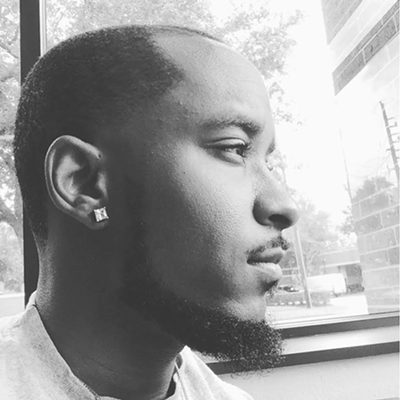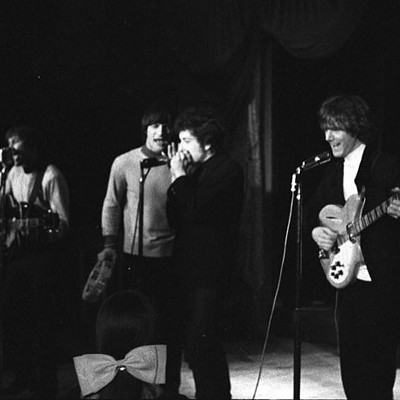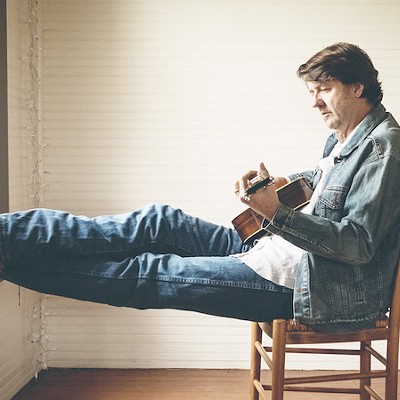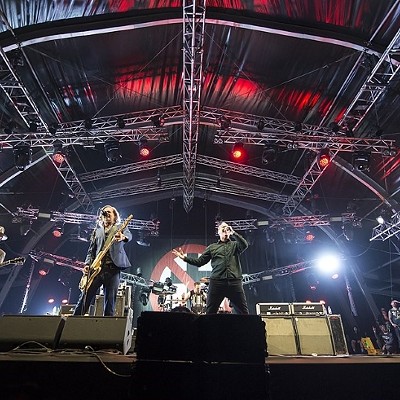The world's most intriguing DJ Khaled mystery has officially been solved.
In casual conversation, allow his name to come up. Had this been around 2006, you’d basically center Khaled around being a DJ from Miami who managed to put together these absurd posse cuts. He routinely found spots for Trick Daddy, he was one of the first to openly accept Pitfall’s time as a rapper and not Miami black or white suit party-music machine by throwing him on the “Holla at Me” track (the one with Paul Wall). Young Rick Ross showed up and kind of stayed as his version of the Notorious B.I.G. Still, we had no clue that DJ Khaled was an actual DJ. He was a connector, one of those “influencers” that you tell a woman on a first encounter so that she looks confused before walking off.
DJ Khaled in 2006 would look at 2016 DJ Khaled and bow at his feet.
Last Sunday, the 40-year-old Khaled Khaled played two stadium shows. First, he was the opener for Beyoncé’s Formation tour stop in Philadelphia at Lincoln Financial Field. Then, even though he hates to fly, he found himself smack-dab in the middle of Hot 97’s Summer Jam festival inside MetLife Stadium as the pseudo-headliner. He’s one of the few to do it, and, what’s more impressive, has gotten to knock out these stadium moments by having the world’s most impressive musical Rolodex. You don’t think Khaled has friends all over? In New York alone, he almost put Usher on Summer Jam as a special guest had the show not run up against New Jersey’s curfew laws.
How exactly, has DJ Khaled in 2016 become an even bigger thing than Khaled in 2006, when in one area they’re still doing the same thing except on a grander scale? Simple — he turned into the hip-hop version of Joel Osteen.
Whether you believe it or not, Osteen is more motivational speaker than preacher. DJ Khaled, through a Snapchat channel documenting his extravagant Miami lifestyle, has blown up everything into hyperbolic comedy. When he was lost at sea in Biscayne Bay in late 2014, it felt like the most harrowing two-hour experience in the history of the photo-sharing app. How did he get into that predicament? By deciding to jet-ski his way to Rick Ross’s mansion in Miami. Absurd in one way, completely appropriate in another.
"If u know me call zay zee tell her we lost," Khaled told his followers before finally being rescued and pointed in the right direction. Overnight, everyone documented it and a monster was born.
When he’s annoying his girlfriend into telling him why she loves him, we’re laughing because most of us have been there. He and his personal chef have the best relationship, almost as if he’s letting us into America’s most random, believe-it-or-not sitcom. By banking his career on sharing his life through Snapchat and turning phrases like “Boss Up," "Another One” and “Major Key” into T-shirt-ready catchphrases, Khaled has taken the baton from the DIY rappers of the late aughts and transformed himself into a mogul.
Apple Music deal? Check. Silk Milk commercial? Check. Telling Ray Liotta, of all people, “you played yourself” in a commercial? Yup. Partnering with T-Mobile to increase the app's brand awareness? Check check. How exactly did we get here with DJ Khaled? How did we finally crack the egg of a man who turned overwatering his plants and quixotic moments of wisdom into being an Internet phenomenon?
Khaled was born in New Orleans, ironically enough, but nothing about him seems that Southern; it's far more Miami polish and sheen. He met Lil Wayne when he was 12, after he and the family moved to Orlando, a far cry from the Big Easy's emerging hip-hop scene. He broke bad, ended up in jail briefly and then found himself with barely any money and a hustle strapped inside his stomach. He made it work.
Somebody proclaiming a situation is a movie? Blame Khaled. “All I Do Is Win” being played everywhere from graduations to the end of sporting events as the confetti hits? Blame Khaled. The rather awkward yet comical “You smart, you loyal” that sort of started KhaledMania? The end of his 2015 “Hold You Down” video with Chris Brown, August Alsina, Future and Trey Songz. It sort of started there and snowballed the moment he got ahold of Snapchat.
The confusing part about Khaled’s rapid ascent? It hasn’t necessarily translated into his being an outright successful musician. Of his eight albums, soon to be nine, only one has registered a Grammy nomination, for 2011's I'm On One, for what he does best — Best Collaboration. That record shifted Drake away from awkward Canadian trying to do good and into a space where he seriously wasn’t about to fuck around with making hits. In essence, Khaled is responsible for moments, and in this particular era of music, making a moment is all you need rest upon. This new album, Major Key, already happens to hold a "Song of the Summer" contender with Drake in “For Free," a bouncy Oakland-esque ride that takes from Too $hort’s 2000s-era hit, “Blow the Whistle." It has the biggest amount of promotion for any Khaled album to date, not just because of his boasts and self-promotion but because he’s doing the self-promoting.
So, what exactly is DJ Khaled’s “job," you say? The thing that makes him famous? He’s a self-promoter who believes in his own ordainment from above. It’s not Paul Heyman delivering carnival barker and fight promoter assuages for Brock Lesnar, oh no. This is all God-given, 100 percent deliverance about his own power, his own faith and how we can all be part of it. Kind of like the guy who holds court at the old Summit.
It’s time to stop laughing at hip-hop’s Joel Osteen and start believing him. Otherwise, we may all play ourselves.






